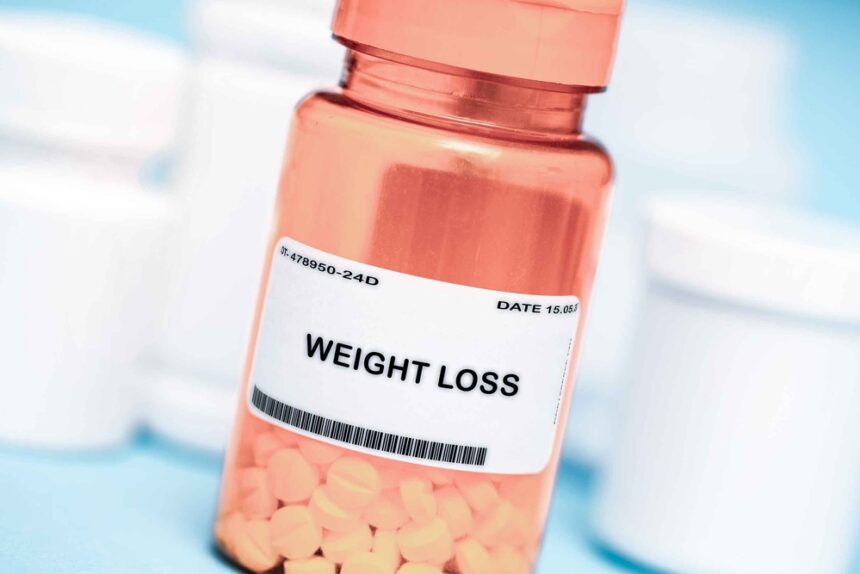Around 5% of all people in the United States take anti-anxiety medications. Of course, most people take this medication to help with anxiety problems, but others take them for other reasons. Some people take anti-anxiety pills to help them lose weight.
Anxiety is a very difficult mental illness to deal with. The good news is that there are a number of ways that people can help manage it. We shared some alternative treatments that don’t require medication. Unfortunately, some people need to use anti-anxiety medications to keep this condition in check.
The good news is that since so many people have taken anti anxiety medications, we have determined that they have some additional benefits. One of those benefits is that they can help with weight loss. Therefore, anxiety medication can be great for people that want to lose weight without exercising.
Anxiety-reducing medications, also known as a blue and sing swiper swipe up teja nxiolytics, are pharmaceutical drugs prescribed to treat symptoms of anxiety disorders. These medications aim to alleviate feelings of excessive worry, fear, or unease, and they can be beneficial for individuals experiencing anxiety-related conditions such as generalized anxiety disorder (GAD), panic disorder, social anxiety disorder, or post-traumatic stress disorder (PTSD). Anxiety-reducing medications work by targeting the brain’s neurotransmitters, such as serotonin, gamma-aminobutyric acid (GABA), or norepinephrine, to regulate their levels and reduce anxiety symptoms. An estimated 60% to 85% of people respond positively to these medications.
Anxiety-Reducing Medications and Weight Loss
Anxiety-reducing medications encompass several types of drugs that are commonly prescribed to alleviate anxiety symptoms and improve overall well-being. Three primary classes of anxiety-reducing medications are selective serotonin reuptake inhibitors (SSRIs), benzodiazepines, and beta blockers. Each class works through different mechanisms to target and manage anxiety symptoms effectively.
One commonly prescribed class of anxiety-reducing medications is SSRIs, such as fluoxetine (Prozac) or sertraline (Zoloft). These medications work by increasing the availability of serotonin, a neurotransmitter that plays a crucial role in mood regulation. By enhancing serotonin levels, SSRIs can help reduce anxiety and promote a more balanced emotional state.
Benzodiazepines, including medications like alprazolam (Xanax) or diazepam (Valium), are another class of anxiety-reducing medications. They work by enhancing the effects of GABA, a neurotransmitter that helps to reduce excessive brain activity and induce relaxation. Benzodiazepines are typically prescribed for short-term relief from severe anxiety symptoms or panic attacks.
For example, certain herbal supplements, such as kratom, have gained popularity for their potential anxiolytic effects. However, it is important to note that the use of kratom or any other alternative remedies for anxiety should be discussed with a healthcare professional, as their safety, efficacy, and potential interactions with other medications or conditions require careful consideration. If you are interested in exploring kratom further, you can find reviews of the best euphoric kratom strains to inform your decision-making process.
Beta blockers, such as propranolol, are primarily used to manage physical symptoms associated with anxiety, such as rapid heartbeat, trembling, or sweating. They work by blocking the effects of adrenaline, a hormone involved in the body’s stress response. By reducing the physiological manifestations of anxiety, beta blockers can contribute to an overall sense of calm and well-being.
These anxiety-reducing medications, when taken as prescribed by a healthcare professional, can have a positive impact on reducing anxiety symptoms. By targeting the underlying neurochemical imbalances and promoting a more balanced emotional state, they can help individuals better manage their anxiety and improve their overall quality of life.
Effects of Anxiety on Weight Gain
Anxiety can have a significant impact on an individual’s appetite. While some people may experience a decrease in appetite during periods of heightened anxiety, others may find themselves turning to food for comfort or distraction, leading to an increase in appetite. The relationship between anxiety and appetite is complex and can vary from person to person. Some individuals may experience a lack of interest in food, leading to unintentional weight loss, while others may seek solace in food, resulting in weight gain.
Stress eating and emotional overeating are common coping mechanisms for individuals experiencing anxiety. During times of stress or emotional turmoil, some individuals may turn to food as a way to soothe their emotions or find temporary relief from anxiety symptoms. This can lead to consuming high-calorie, comfort foods that are often rich in sugar and unhealthy fats. The act of eating can trigger the release of neurotransmitters like dopamine, which provide temporary feelings of pleasure and relief.
However, relying on food as a coping mechanism can contribute to weight gain and hinder weight loss efforts. Managing anxiety and its effects on weight gain is essential for individuals aiming to achieve weight loss goals. In addition to exploring anxiety-reducing medications or other anxiety management strategies, some individuals may consider incorporating exercise regimens or adopting a cutting cycle as part of their weight loss journey.
Anxiety can also influence metabolism and fat storage processes in the body. Chronic anxiety and stress can lead to the overproduction of stress hormones such as cortisol. Elevated cortisol levels can affect metabolism by increasing insulin resistance and promoting the storage of fat, particularly in the abdominal area. Additionally, heightened anxiety can disrupt sleep patterns, leading to insufficient rest, which can further impact metabolism and contribute to weight gain.
Considerations and Limitations
It is important to recognize that individuals may respond differently to anxiety-reducing medications. Each person’s neurochemistry and overall health can influence how they metabolize and tolerate medications. What works effectively for one individual may not have the same impact on another. It may take time to find the right medication, dosage, or combination of medications that best addresses an individual’s anxiety symptoms. Close monitoring and regular communication with a healthcare professional are crucial to ensure that the chosen medication is effective and well-tolerated.
Like any medication, anxiety-reducing medications can have potential side effects. These side effects can vary depending on the specific medication and individual factors. Common side effects of anxiety-reducing medications may include drowsiness, dizziness, nausea, headaches, or changes in appetite. Some medications may have more severe side effects or carry a risk of dependency or withdrawal symptoms. It is important to thoroughly discuss potential side effects with a healthcare professional and report any adverse reactions promptly.
While anxiety-reducing medications can play a role in managing anxiety and indirectly supporting weight loss efforts, they should be viewed as part of a comprehensive weight loss approach. Sustainable weight loss is typically achieved through a combination of healthy eating habits, regular physical activity, stress management techniques, and behavior modifications. Anxiety-reducing medications can help individuals better engage in these lifestyle changes by reducing anxiety symptoms and improving overall well-being. However, solely relying on medication without addressing other aspects of weight loss may yield limited results. It is crucial to work with healthcare professionals, such as doctors, dietitians, or therapists, to develop a holistic weight loss plan that considers individual needs and incorporates multiple strategies for long-term success.
By acknowledging the individual variations in medication response, understanding potential side effects, and embracing a comprehensive weight loss approach, individuals can make informed decisions and optimize their weight loss journey while effectively managing anxiety symptoms.
Overall
In conclusion, anxiety can have a profound impact on weight gain or loss. The relationship between anxiety and weight is complex, involving factors such as appetite changes, stress eating, emotional overeating, and alterations in metabolism. Anxiety-reducing medications, including selective serotonin reuptake inhibitors (SSRIs), benzodiazepines, and beta blockers, can help alleviate anxiety symptoms and indirectly contribute to weight loss efforts. These medications target neurochemical imbalances, reduce stress-induced eating behaviors, and promote a more balanced emotional state.










